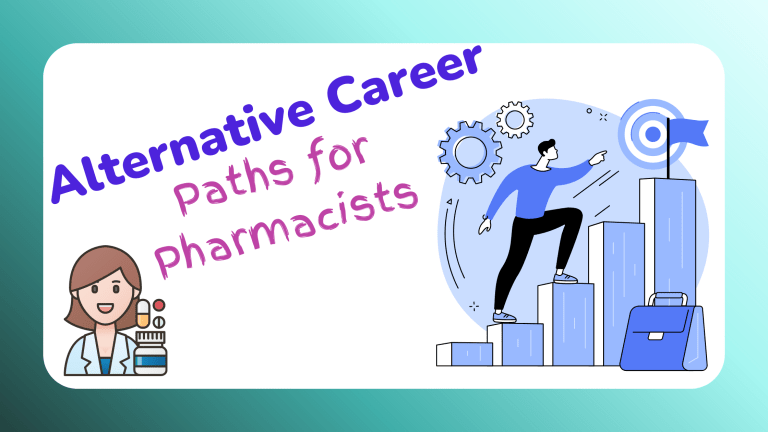How to Become a Pharmacovigilance Specialist: Steps to Launching a Career in Drug Safety
Title: How to Become a Pharmacovigilance Specialist: Steps to Launching a Career in Drug Safety
Introduction
Pharmacovigilance is really important work focused on keeping medicines safe for everyone. It’s all about noticing and preventing bad side effects from drugs. This is super important for public health because it makes sure that taking medicines is safer than not taking them. If you’re curious about how drug safety is watched over even after a drug is on the market, pharmacovigilance is the answer. As a specialist in this field, you’ll have a big job keeping people safe as medicines change and improve. Now is a good time to start a career in drug safety, especially as there are more jobs needed in this field.
Understanding Pharmacovigilance
Being in pharmacovigilance is more than just having a job; it’s about making sure medicines are safe for lots of people everywhere. As a pharmacovigilance specialist, you will check on how medicines might cause bad reactions and let other people know about it. Working with other healthcare workers, you help find possible problems and make drugs safer to use. This can stop big health emergencies and helps make treatments work better and be safer.
Skills and Qualities Needed
If you want to do well as a pharmacovigilance specialist, you’ll need some special skills. Here are some important ones to have:
1. Be good at looking at a lot of information and finding the important parts.
2. Be able to explain tricky things clearly in talking and writing.
3. Pay close attention to details so the information is accurate.
4. Be able to work well with different teams.
5. Know a lot about how drugs are made and the rules they must follow.
6. Be familiar with databases related to pharmacovigilance like Argus Safety.
7. Know how to use data software like SAS or SPSS.
8. Be good at solving problems and finding ways to make drugs safer.
9. Make the right choices using good judgment.
10. Always be ready to learn more about keeping drugs safe.
Educational Requirements
To work in pharmacovigilance, having a bachelor’s degree in pharmacy or life sciences is a good start. Going further with a master’s or Ph.D. can help you know even more about it and maybe get better jobs. Learning courses specifically about pharmacovigilance and drug safety can also be helpful.
Gaining Relevant Experience
Sometimes experience can be just as important as your education in this field. Look for entry-level jobs at places like drug companies or agencies that look after drug safety. Working in these roles together helps you learn how the job works. Internships and volunteer work can also teach you a lot. Working in health care can also be helpful. It’s also good to be a part of professional groups like the International Society of Pharmacovigilance (ISoP).
Certifications and Professional Development
Getting certified in pharmacovigilance can give you an advantage over others looking for similar jobs. Here’s some to think about:
1. DIA (Drug Information Association) – Certification in Pharmacovigilance.
2. ICPI (International Certification in Pharmacovigilance Auditing) – Specialized certification.
3. RAPS (Regulatory Affairs Certification) – Certification for professionals involved in drug safety.
These certifications show you really care about this career. Also, going to workshops can keep your skills fresh and updated.
How to Find Job Opportunities
You can find jobs in many places that need pharmacovigilance specialists, like drug companies and research places. Here’s how to find job opportunities:
1. Use job websites and networking sites like LinkedIn.
2. Sign up for alerts about new jobs in the field.
3. Change your resume to show off important skills and experiences.
4. Use your connections from professional groups.
5. Go to job fairs to meet companies.
6. Think about different types of work in pharmacovigilance to find more job options.
Career Progression
Starting with an entry-level job lets you learn the basics in the field of pharmacovigilance. As you learn more, you can specialize in things like Risk Management or Signal Detection. With dedication, you could become a Senior Drug Safety Officer or a Director of Pharmacovigilance, making important decisions.
Challenges and Opportunities in Pharmacovigilance
This career has both challenges and chances. You might find it hard to get through tough rules or handle a lot of safety information. But, with new technologies, there are also exciting chances to make things better. Staying updated on artificial intelligence and big data can help drug safety a lot.
Conclusion
Starting a career in pharmacovigilance means using your education and passion to help public health. If you like the idea of keeping medicine safe and helping health outcomes globally, this could be the perfect job for you. Since the need for specialists in this field keeps growing, now is a great time to start. At Pharmacovigilance Foundations, we support you in taking these steps to make a positive impact through drug safety.






